
MS and Demyelinating Disorders
Latest News
Latest Videos

CME Content
More News

Darin Okuda, MD, spoke about the new investigative therapies for MS, as well as the expanding role of disease-modifying therapies.

Investigators have identified a new subtype of MS in postmortem tissue, characterized by a lack of cerebral white matter demyelination.

The director of the Partners Pediatric Multiple Sclerosis Center at Massachusetts General Hospital spoke about the current landscape of MS treatment.

Darin Okuda, MD, provides insight into the nuances that come with the treatment of MS with disease-modifying therapies.
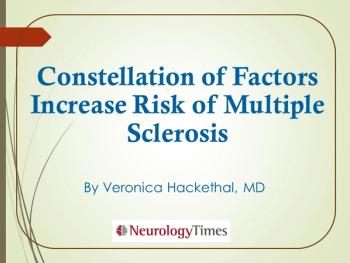
Smoking, organic solvents, and genetic susceptibility combine to increase MS risk.

After a 2-year blinded extension of the RADIANCE trial, ozanimod revealed sustained efficacy in both patients who continued treatment and those who switched from placebo.

The vice president of US Medical Affairs in Neurology & Immunology at EMD Serono discussed the potential for the oral multiple sclerosis therapy.

African-American patients with MS on fingolimod were 50.2% more likely to remain true to their treatment regimen than those treated with injectable disease-modifying therapies.

The EMD Serono therapy’s resubmission was accepted after a 2011 CRL, with the new NDA supported by the findings of a 5-study clinical development program.

Those treated with ocrelizumab observed a 46% reduction in their risk of progressing to a wheelchair compared to those administered placebo treatments.

The FDA has expanded the indication for fingolimod to include the treatment of children and adolescents age 10 years and older with relapsing multiple sclerosis.

5 important facts from a recent double-blind, randomized phase 3 study about siponimod in SPMS.
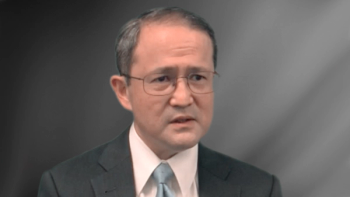
The group medical director of neuroscience at Genentech discussed the history of a well-known therapy for multiple sclerosis: ocrelizumab (Ocrevus).

The disease-modifying therapy showed significant improvements in 4 TSQM measures for patients with relapsing multiple sclerosis.

The associate professor of clinical neurology spoke about the need to understand modifiable social and cultural factors that could impact disease severity and progression.

The data from the phase III EXPAND study indicated to the researchers that this risk reduction obtained with siponimod was substantially isolated from MS relapse.

Alterations in the gut microbiome may trigger autoimmunity against the CNS, and contribute to the development of neuropsychiatric disorders. How? A recent review offers insights.

The injection therapy now has an indication for use in either 40 mg/mL or 20 mg/mL doses, with the lower dose having been approved in June 2015.
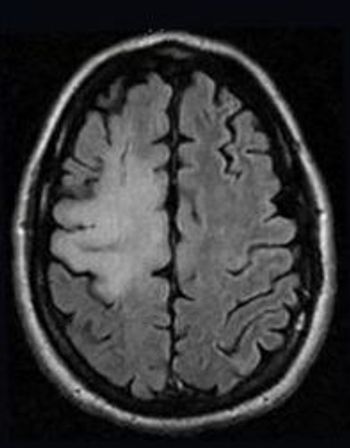
On the challenges of treating progressive multifocal leukoencephalopathy in MS patients.

The findings reveal that taurine could be could be added to an MS therapy regimen to boost mature oligodendrocyte production, and in turn, remyelination.

Can aspirin improve exercise endurance in people with MS? How best to treat children with MOG-Ab associated disease? What factors increase MS susceptibility?

Clinically useful Insights on multiple sclerosis culled from 3 presentations at the 7th Joint ECTRIMS-ACTRIMS conference are briefly summarized here.
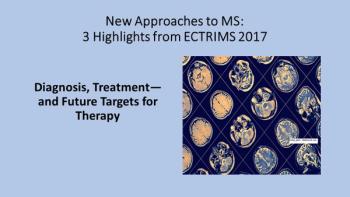

A study of over 80,000 patients confirmed another strong reason to prevent young people from repetitive head blows.
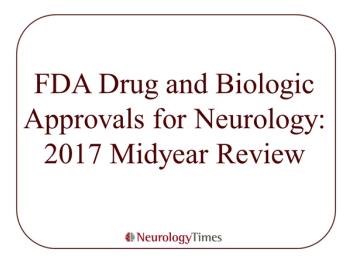
Seven new drugs were approved for treatment of neurological disorders, including Parkinson disease, multiple sclerosis, and amyotrophic lateral sclerosis.



















